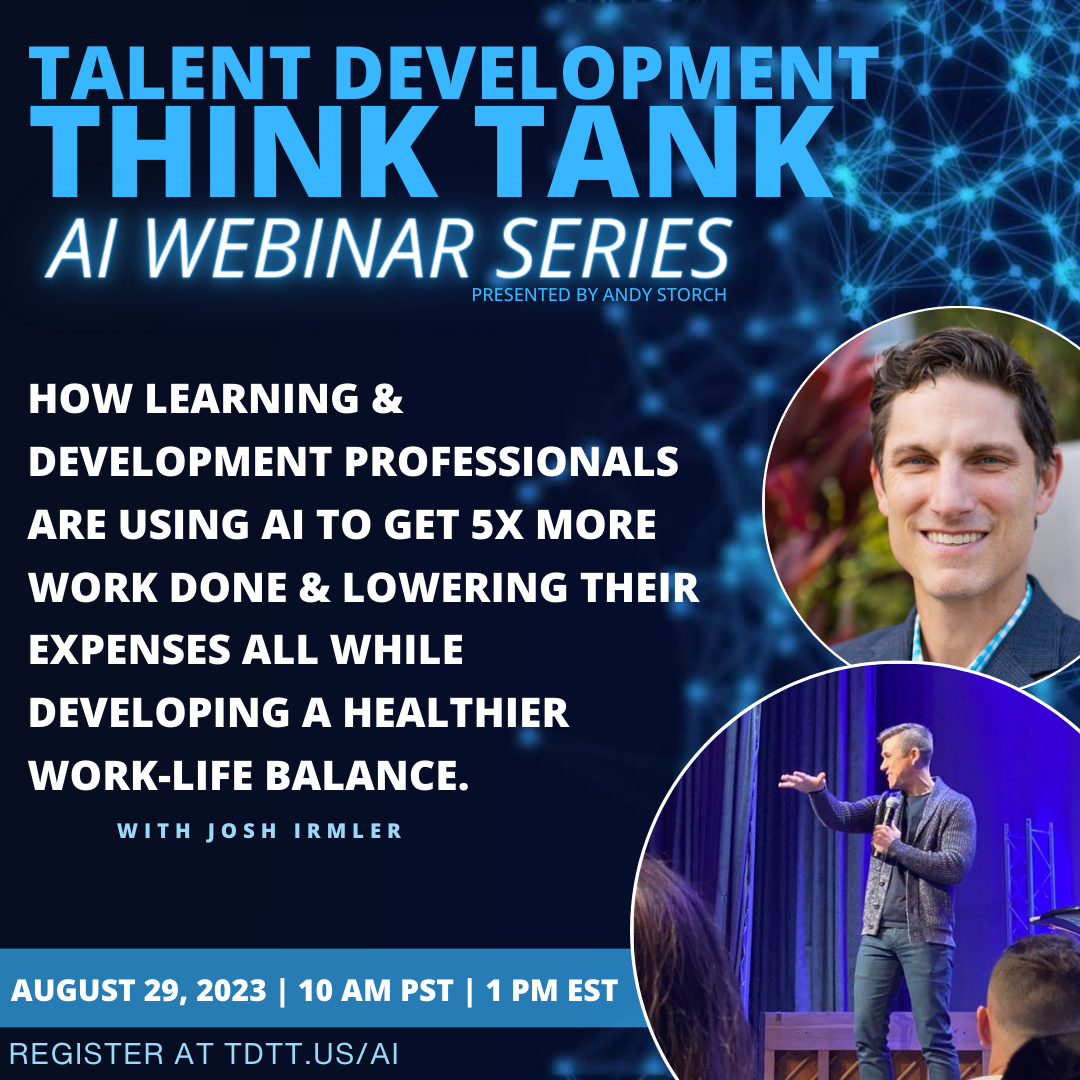Using AI to Transform Talent Development and Acquisition with Sarah Tilley from ServiceNow
Artificial Intelligence (AI) has been revolutionizing various industries, and talent development and acquisition are no exceptions.
By leveraging AI technologies, organizations can enhance their talent strategies, streamline processes, and make data-driven decisions. In this blog post, we will guide you through the process of using AI to transform talent development and acquisition in your organization.
Step 1: Identify Your Goals and Objectives:
Before implementing AI in talent development and acquisition, it is crucial to define your goals and objectives. Identify areas where AI can make the most impact, such as automating administrative tasks, improving candidate selection processes, or enhancing personalized learning experiences for employees.
Step 2: Assess Existing Skills and Identify Skill Gaps:
Conduct a comprehensive assessment of your organization's existing skills by leveraging AI-powered tools. These tools can analyze employee data and extract valuable insights to identify skill gaps. By understanding your employees' skills and areas of improvement, you can better tailor your talent development programs and identify areas for growth.
Step 3: Leverage AI in Talent Acquisition:
AI can significantly improve the efficiency and effectiveness of talent acquisition. Here are some key practices to integrate AI into your talent acquisition processes:
Resume Screening:
Use AI-powered resume screening tools to analyze resumes and identify potential candidates that match predefined qualifications. This saves time and ensures a more objective evaluation process.
Video Interviewing:
Implement AI-powered video interviewing platforms that can analyze facial expressions, tone of voice, and language to provide insights on candidate suitability. This helps eliminate potential biases and provides valuable data for hiring decisions.
Skills-based Assessments:
Utilize AI technology to administer skills-based assessments that accurately evaluate candidates' technical abilities. AI algorithms can analyze responses and provide detailed feedback, speeding up the assessment process while ensuring objectivity.
Step 4: Personalize Learning and Development:
AI can provide personalized learning and development opportunities based on employees' skills, interests, and career aspirations.
Here's how to implement personalized approaches:
Skills Intelligence:
Implement AI-powered skills intelligence platforms that can identify skills gaps and suggest personalized learning paths or training programs to employees.
- Microlearning and Adaptive Learning:
Leverage AI to provide bite-sized learning modules tailored to an individual's specific needs. Adaptive learning platforms use AI algorithms to analyze learners' progress and dynamically adjust the content to maximize effectiveness.
Intelligent Mentoring:
AI-powered mentoring platforms can recommend suitable mentors to employees based on their skills and development goals. This facilitates knowledge sharing and helps cultivate a culture of continuous learning.
Step 5: Measure and Optimize Talent Development:
To ensure the success of your AI-powered talent development initiatives, it's essential to measure their impact and make data-driven optimizations. Consider the following strategies:
Performance Analytics:
Use AI to analyze performance data and identify correlations between specific training initiatives and performance improvements. This data can help refine talent development programs and ensure their alignment with organizational goals.
Sentiment Analysis:
Leverage AI algorithms to analyze employee sentiment and feedback regarding talent development initiatives. This feedback can help identify areas of improvement and tailor programs to meet employees' needs.
- Continuous Improvement:
Regularly review and update your AI-powered talent development processes to ensure they align with evolving business needs and incorporate new technologies and methodologies.
AI has the power to transform talent development and acquisition in organizations, enabling data-driven decision-making, personalized learning experiences, and streamlined processes. By following the step-by-step guide outlined in this blog post, you can unlock the benefits of AI in talent development and acquisition, enhancing your organization's overall success.
Remember, transitioning to AI-powered talent development and acquisition requires a careful and thoughtful implementation. It is essential to leverage expertise, collaborate with stakeholders, and continuously monitor and adapt your strategies to maximize the benefits of AI in talent development and acquisition.
Sarah Tilley is the Senior Vice President, Global Talent Acquisition and Development for ServiceNow, the digital workflow company with over 24,000 employees.
In her role, Sarah is responsible for leading a newly integrated Talent organization which includes all external recruitment and internal mobility, learning and development (inclusive of leadership development), talent and succession planning, and all efforts to lead ServiceNow forward on a skills-based talent strategy. Her team is responsible for holistically looking across the talent lifecycle for employees to ensure delivery on what matters most to them while also meeting the talent needs of ServiceNow’s critical business priorities.

Listen to the podcast episode here:
Join us for the Talent Development AI Webinar Series
Josh Irmler, CEO of Landdai, will be sharing how learning and development professionals are using AI to get 5x more work done and lowering their expenses all while developing a healthier work-life balane.
The webinar series is completely free and Josh will be joining us on August 29th, 2023 at 10 am PST | 1 pm EST.

